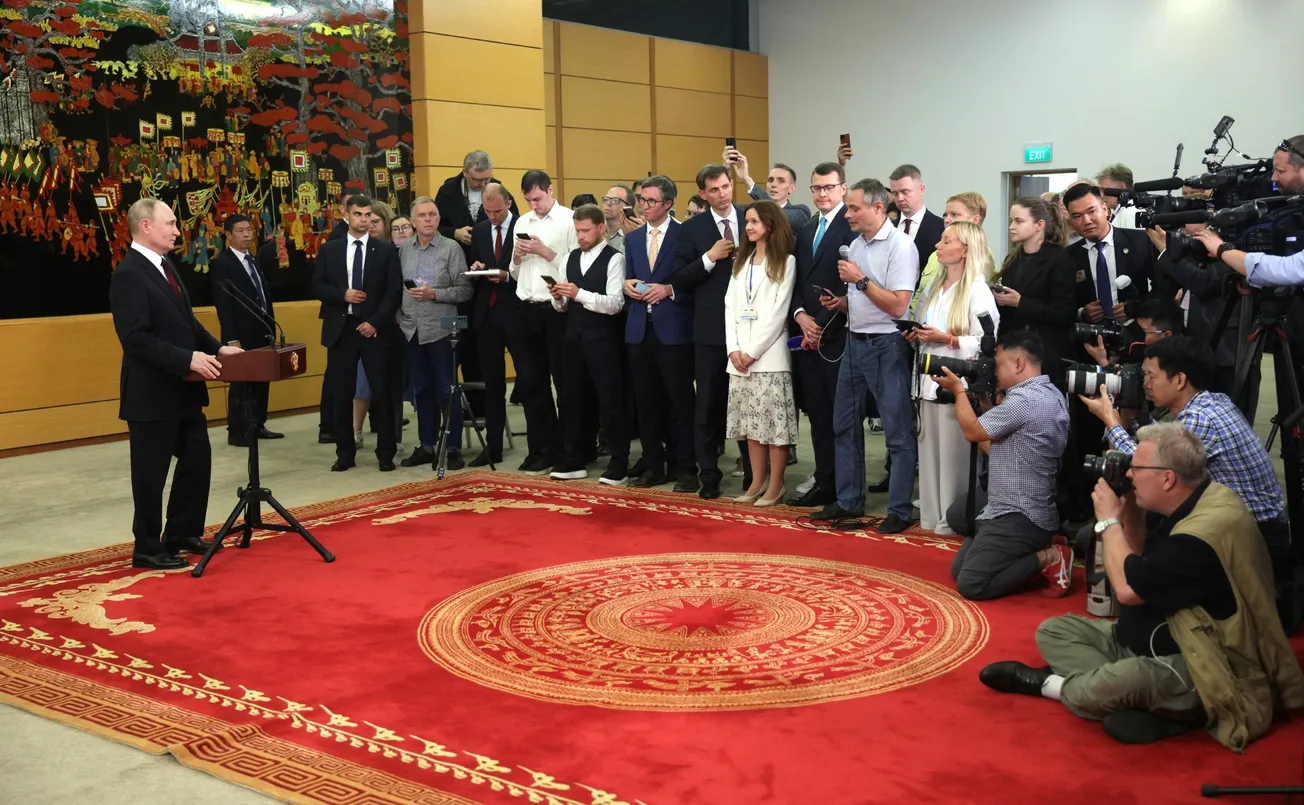Russian President Vladimir Putin held a lengthy press conference with accompanying journalists at the end of his visit to Vietnam. In response to a question as to whether any changes in the Russian nuclear doctrine would involve a preemptive nuclear strike, Putin said that Russia would not launch a preemptive nuclear strike, since a retaliatory strike would destroy the enemy. In another question, regarding NATO’s placing warheads on their nuclear missiles, Putin replied, “The strategic nuclear forces of the Russian Federation are always in a state of full operational readiness. Therefore, we are not much concerned about what Western countries are doing now. But we are, of course, watching it closely and will respond appropriately and adequately if any threats grow.”
With regard to a question about the West continually heating up of the situation, he was more direct: “Indeed, we see it, we observe it. They are always, as you said, raising the temperature, escalating the situation. Apparently, they are counting on the fact that at some point we will be frightened. But at the same time, they also say that they want to achieve a strategic defeat of Russia on the battlefield. What does this mean for Russia? For Russia it means the end of its statehood. It means the end of the thousand-year history of the Russian state. I think this is clear to everyone. And then the question arises: Why should we be afraid? Isn’t it better to go to the end? This is elementary formal logic, a course in which—I think we had only six months of formal logic taught at the university—I remember very well. I even remember the teacher who taught it to us.”
Regarding the treaty that he had signed with the D.P.R.K., Putin described it simply as updating the treaty that had been made in the 1960s which had expired, with many of the stipulations the same. He was asked if he expected any North Korean soldiers to be deployed in the special military operation. He explained that the treaty comes into force only if one of the parties is attacked. In the case of the special military operation, it was the Lugansk and Donetsk republics which had been attacked before they became part of Russia.



